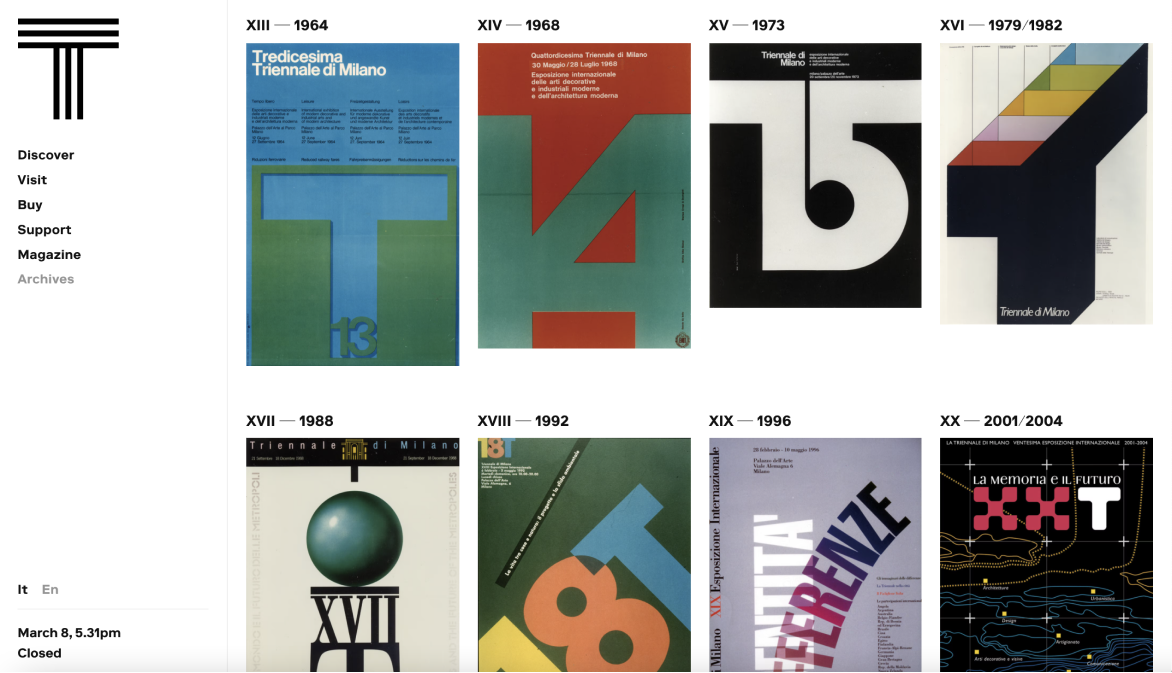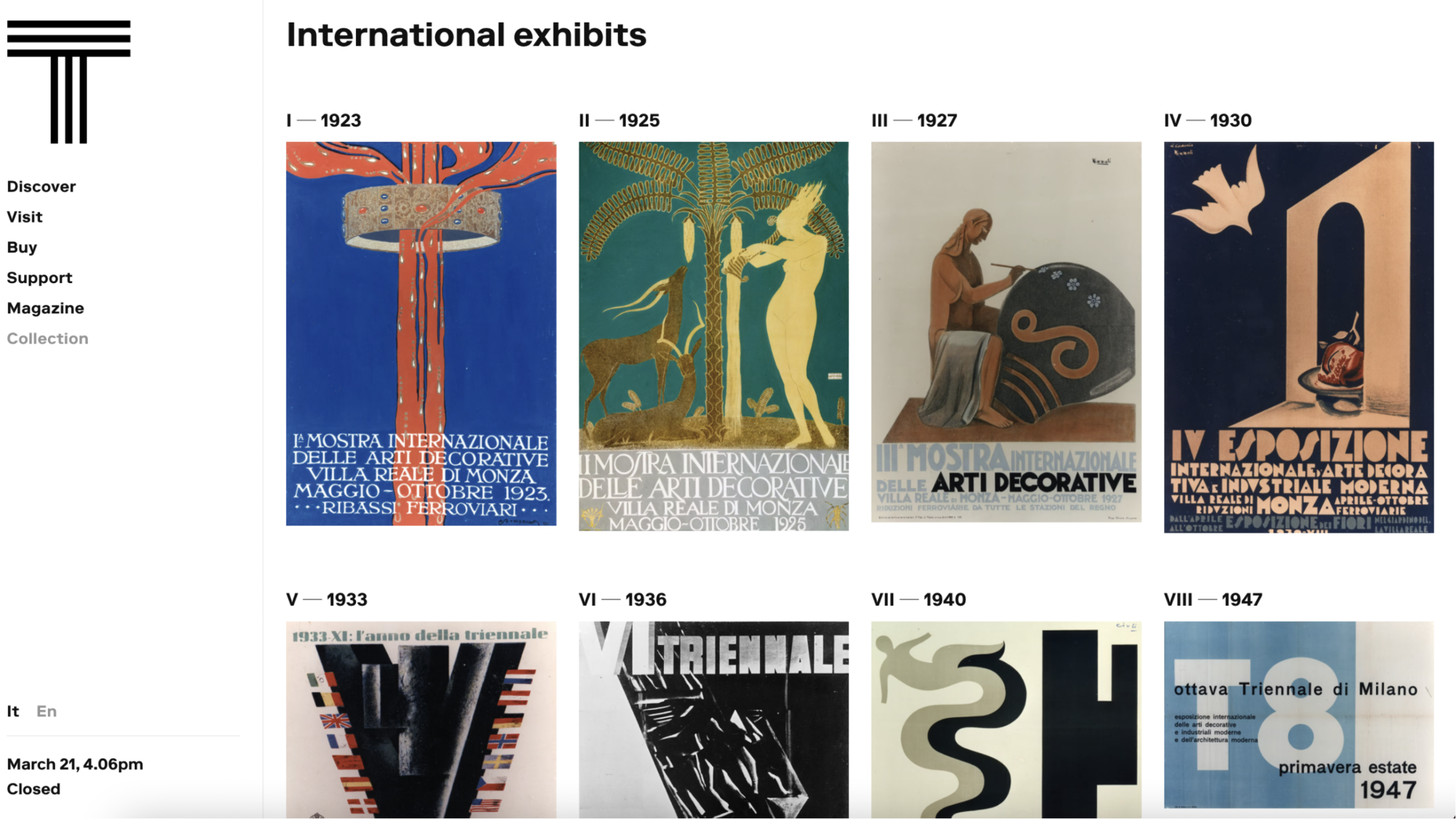
Archive–building might not initially spring to mind as a data project. But record–keeping and cataloguing methods are often held together by numbers–based logic. Think of the Dewey Decimal System: A numerical series that categorizes books and organizes libraries.
We have helped a number of organizations build digital hubs from analogue archives as well as 21st–century technology. All place emphasis on form and function and encourage rabbit hole–like exploration by design. The Triennale Museum’s archives are a good example.

Triennale archives, searchable by edition. Blah blah blah Blah blah blah Blah blah blah Blah blah blah Blah blah blah Blah blah blah Blah blah blah Blah blah blah Blah blah blah Blah blah blah .
Triennale Museum
The museum in Milan opened in part to commemorate and promote the legacy of the eponymous world exhibition of art and design. A multitude of photos and videos from every exhibition dating back to 1923 are included in the database, as well as information on each edition’s theme. Every entry is akin to a time capsule of the year, filled with items from around the world that demonstrate ingenuity in its most beautiful forms.
Additionally, a timeline feature showcases the museum’s permanent collection, which houses art, objects, and ephemera produced in Italy. The interface shows the evolution of high design as well as daily life since 1927. Espresso makers and Olivetti typewriters appear alongside Gucci scarves and sculptures by Gio Ponti.
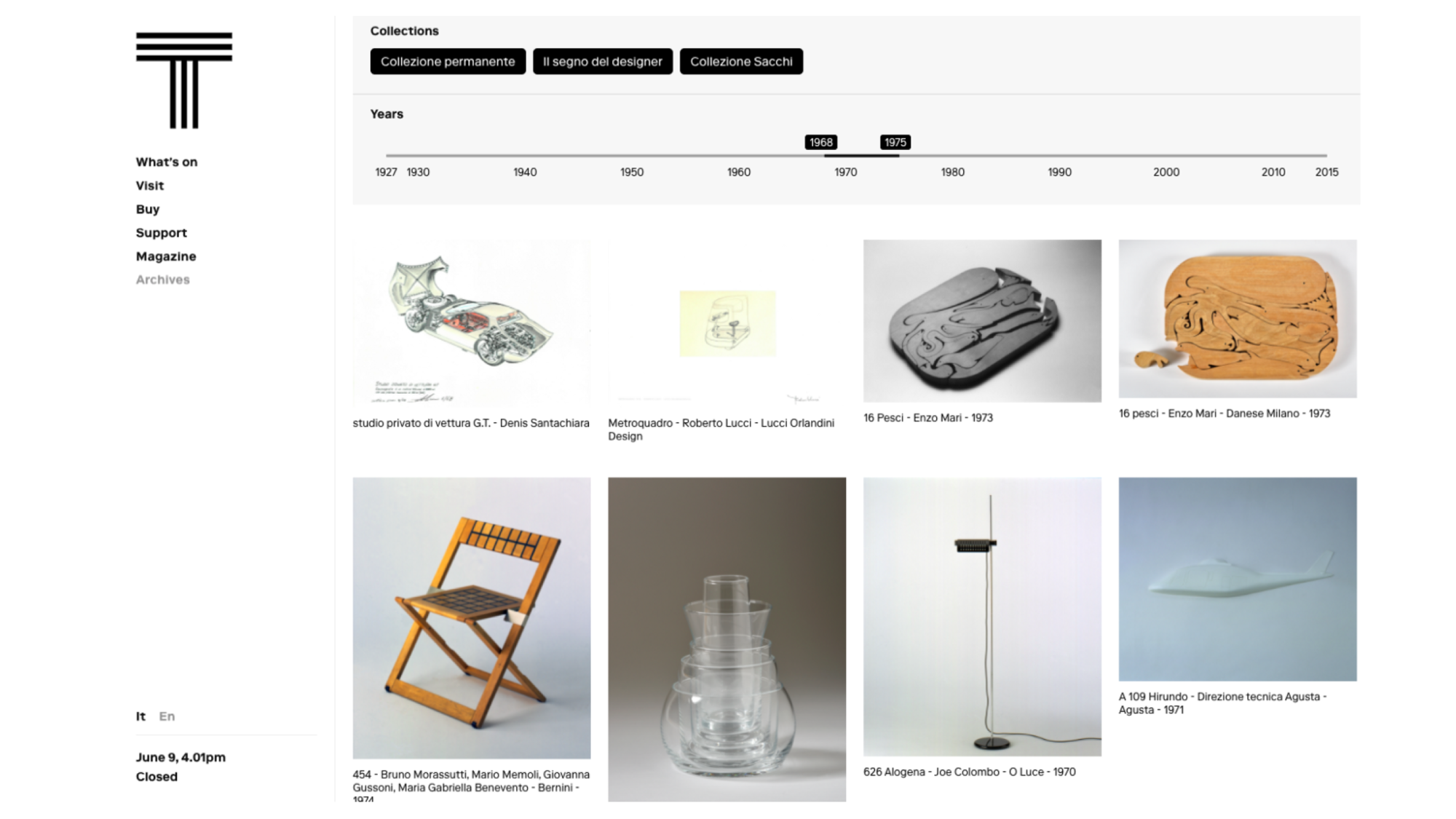
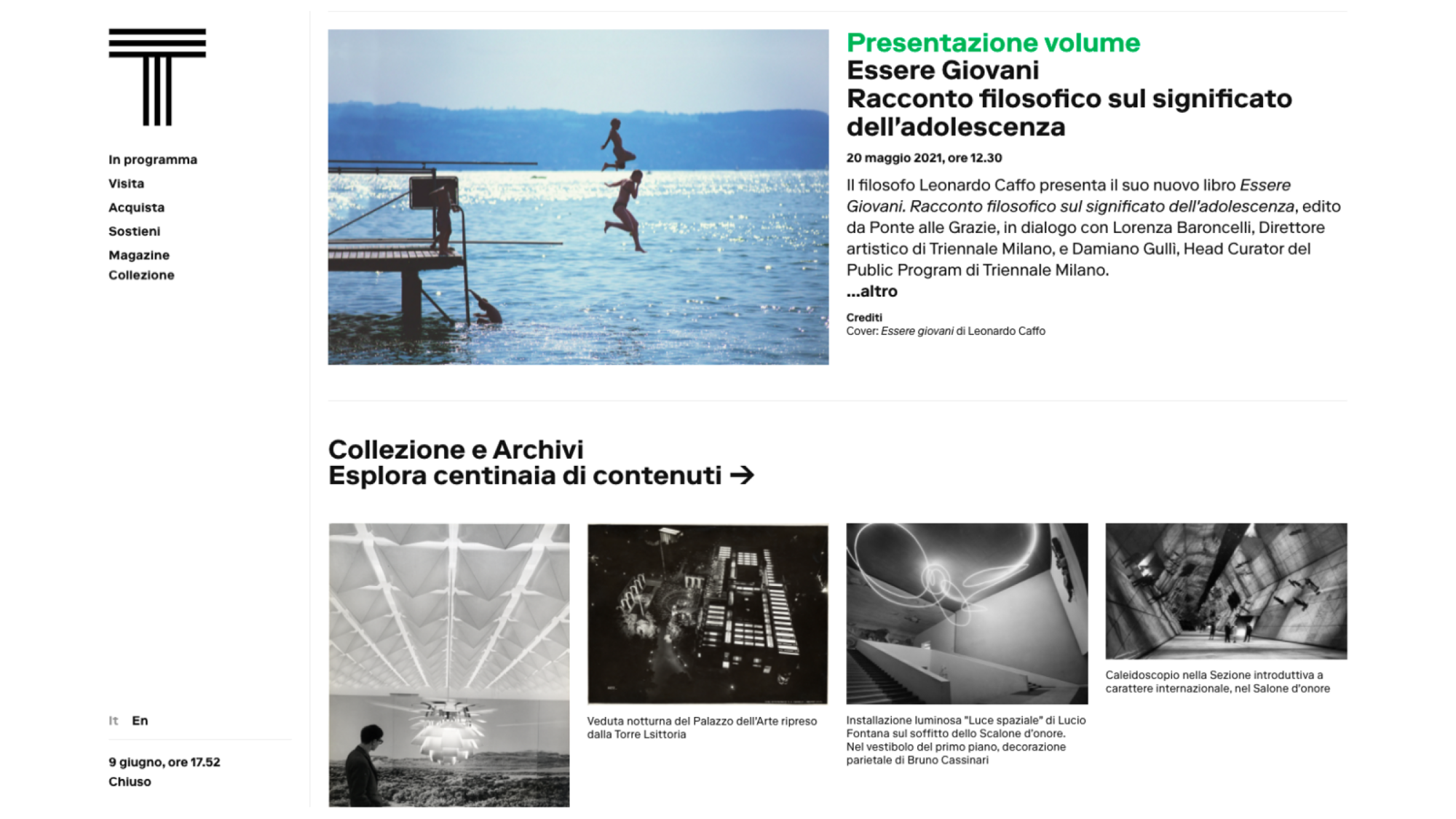
It bears mentioning that the archives are also an indispensable resource for museum staff. Curators and editors can easily find, publish, print, and send materials needed for research and communications. Furthermore, pieces from the archive are integrated throughout the museum’s website via tagging and recirculation. This architecture places artifacts in proximity to new content, events, and exhibits to impress the idea of the organization as both a historical resource and a forward–thinking center for artistic innovation.
Of course, preserving history isn’t just about safekeeping treasures. It can also mean saving for posterity things we’d rather forget, figuratively speaking.
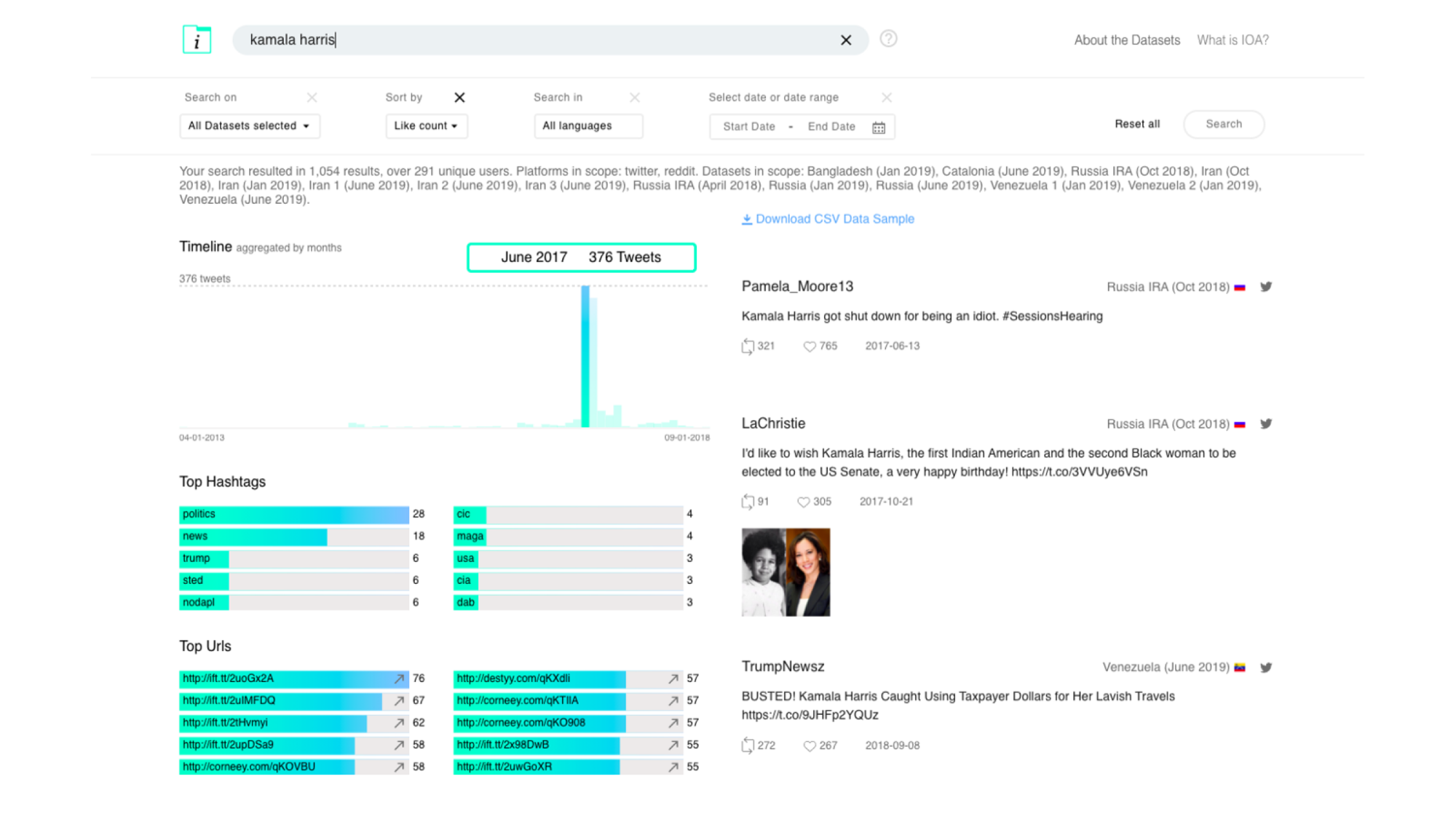
Fake accounts on Information Operation Archive.
Information Operation Archive
The Information Operations Archive (IOA) is a database of social media posts with content like “This is big! Hillary Clinton covered up child trafficking investigation at the State Department” and “Watch: Barack Obama admits he was born in Kenya #birtherism.” Co–created by the Alliance for Securing Democracy, a bipartisan think tank initiative, and Graphika, a network analysis firm, IOA currently hosts 10 million Twitter and Reddit messages from Russian and Iranian–backed election interference missions.
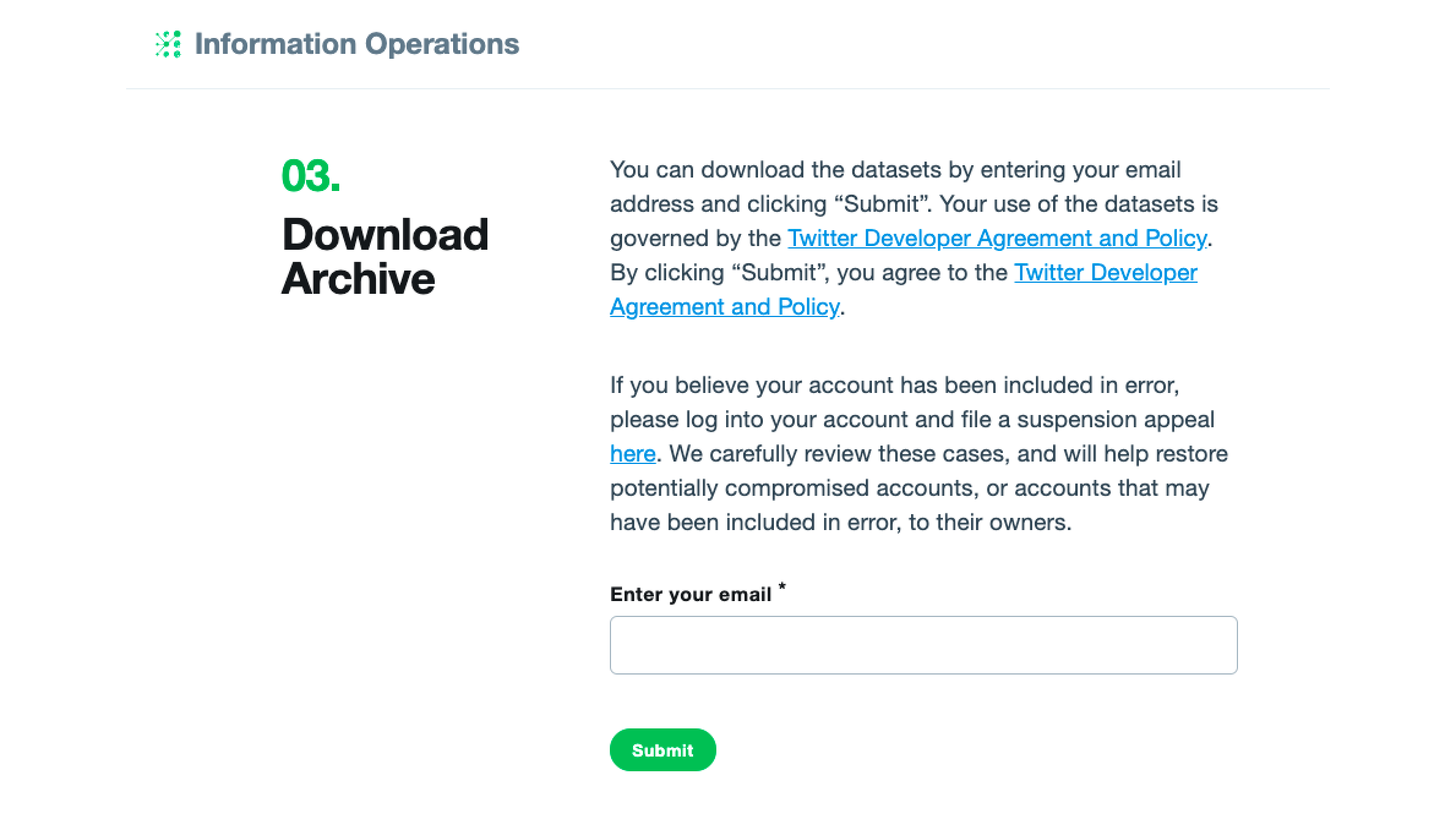
While Twitter and Reddit “released” datasets for public use in 2018, they imposed significant hurdles to access them. Twitter asked users to enter an email address to download a 5GB file that was virtually impenetrable to anyone without a data science background. For our part, we helped elucidate the data sets by transferring them to a user–friendly environment where social posts—in addition to date range and associated hashtags—are visualized. The IOA fulfills a purpose in not only making the tweets accessible and searchable, but also in foregrounding how they can (and should) be used for critical analysis. And though frequently nauseating, the IOA exposes common, specious strategies that bad actors use to stoke division.
A search for “Kamala Harris,” for example, yields both expected results (“BUSTED! Kamala Harris Caught Using Taxpayer Dollars for Her Lavish Travels”) and ones that on a surface level seem more puzzling, such as a tweet wishing Harris a happy birthday. The message— sent by a fake account that espoused progressive views—features a photo of Harris as a child sporting an afro.
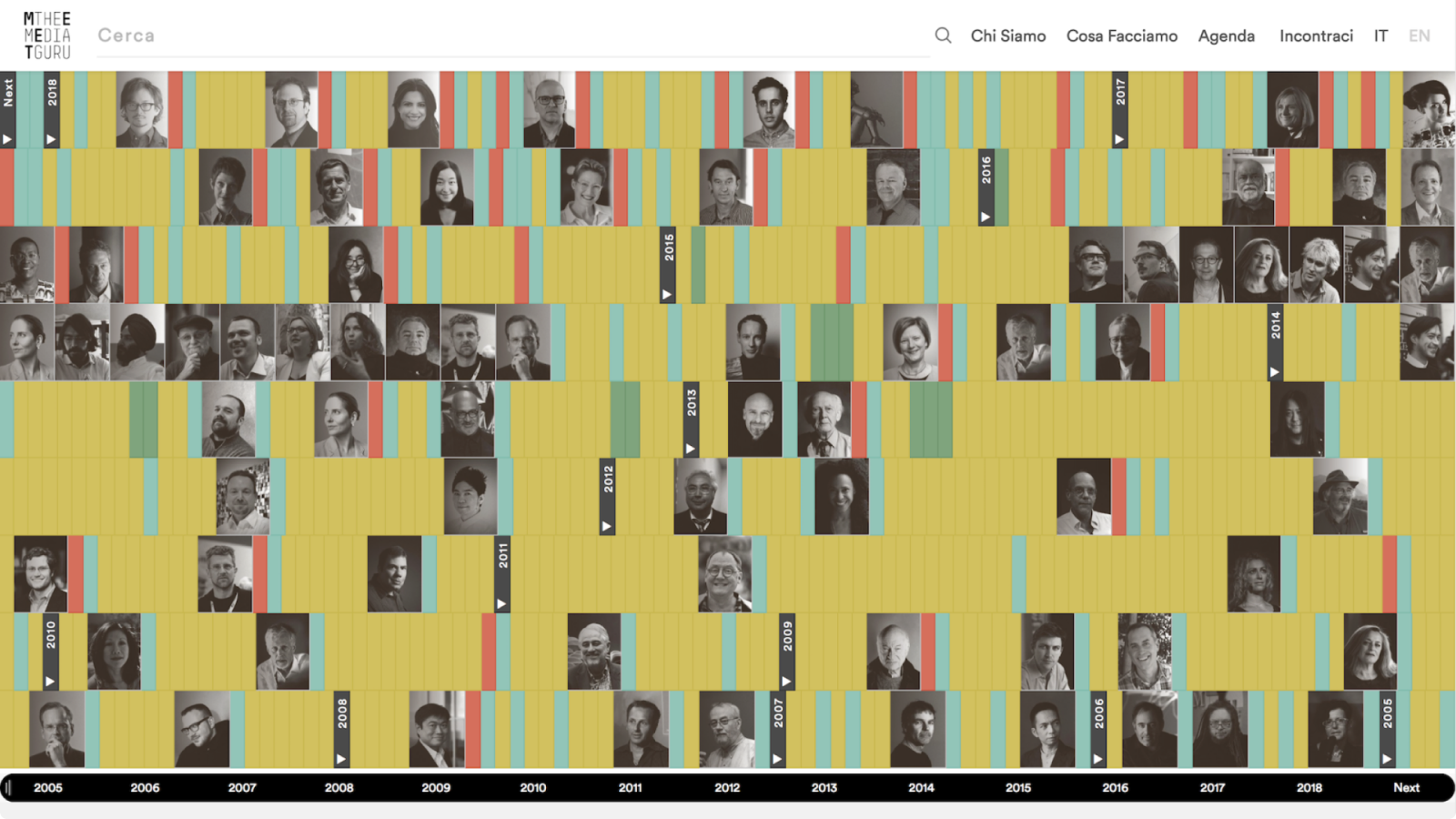
MEET Digital Culture Center
One more web archive we’re proud to have worked on is MEET Digital Culture Center’s. MEET was born from art critic and technologist Maria Grazia Mattei’s “Meet the Media Guru” event series, which began in 2005. The recent opening of a dedicated space — the first of its kind in Italy — represented a new chapter, not a fresh start. Representatives wanted the Center’s web presence to promote future events and serve as a resource to access audio, photo, and video from the past.
Like the Triennale Museum’s archives, MEET’s are navigable through an interactive timeline. The difference between the two interfaces demonstrates the creative latitude possible, even in a format as seemingly straightforward as a timeline. MEET’s content is color–coded by media type and prominently features the faces of past speakers. Compact yet expandable and located on the Center’s homepage, it resembles an organized library shelf—the type you might find at the IRL Center. Users can peruse based on their preferences, and essentially create their own, filtered timeline that only surfaces content of interest.
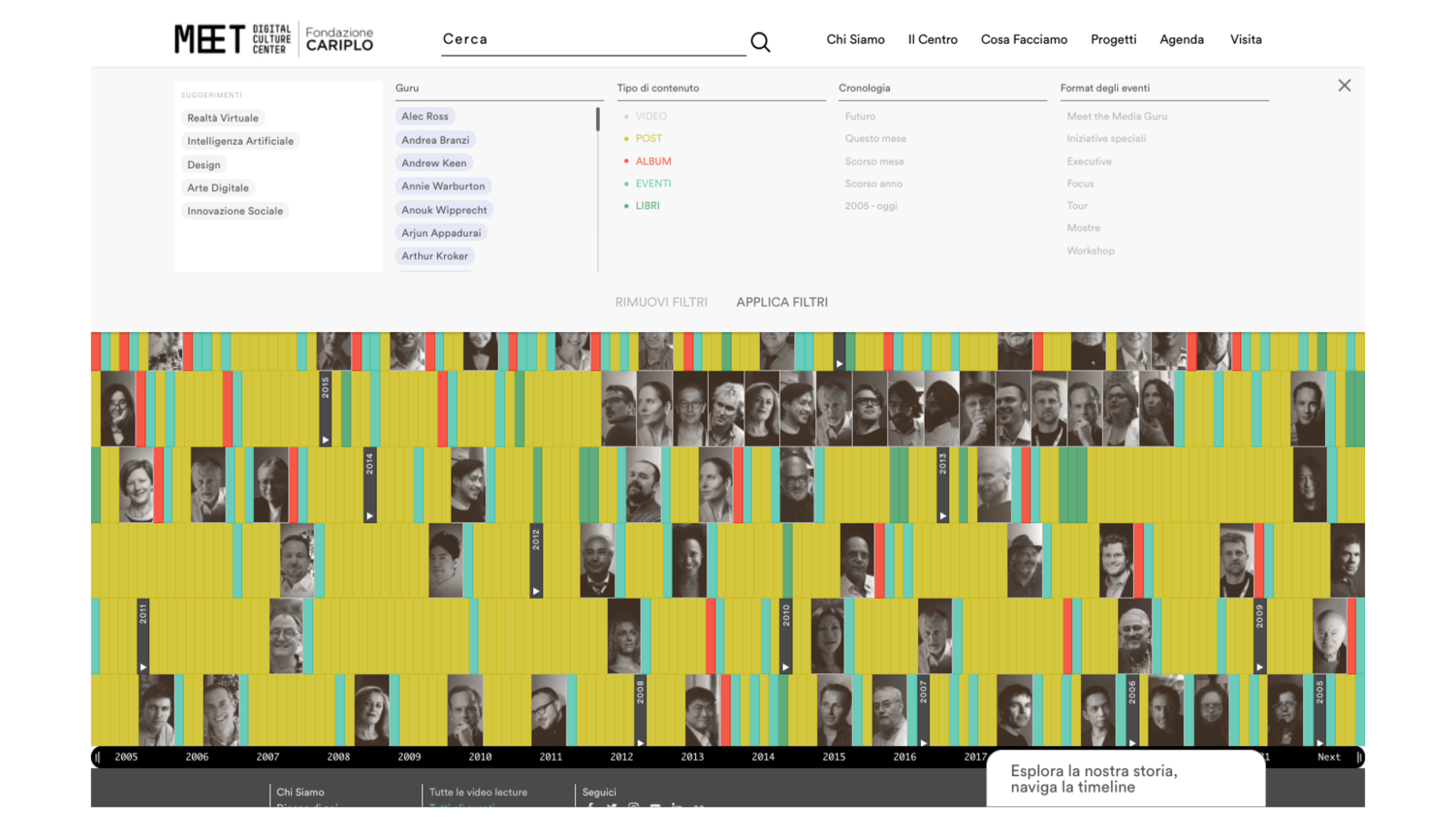
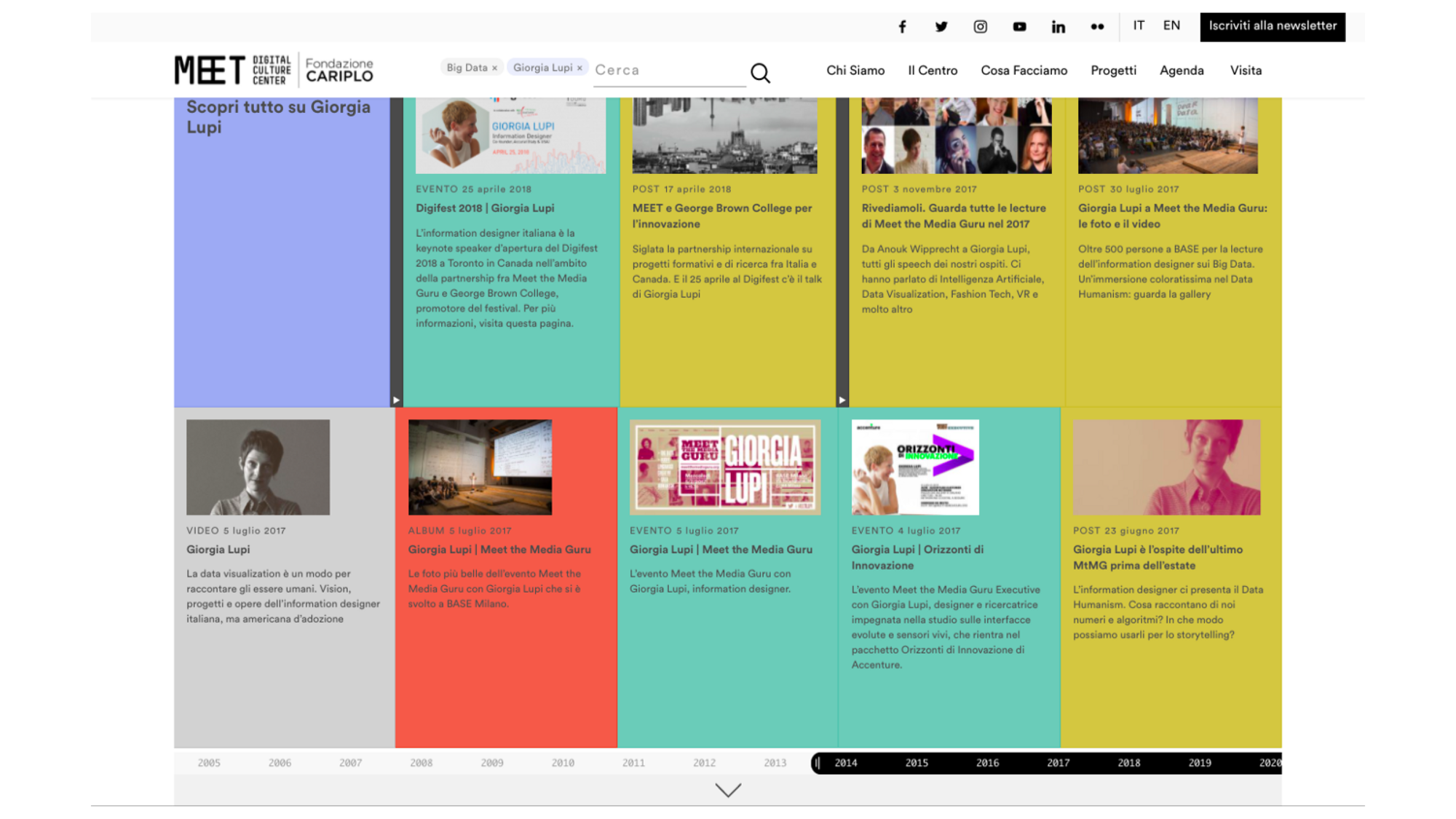
MEET Digital Culture Center
In addition to making materials available for the entire world to study, digital archives also allow for greater possibilities when it comes to placing objects in historical context. Whereas a physical file can only exist in one place, a digital one can be tagged with an infinite number of descriptors, any one of which could be an entry point for a curious user.
More on the Triennale Museum
